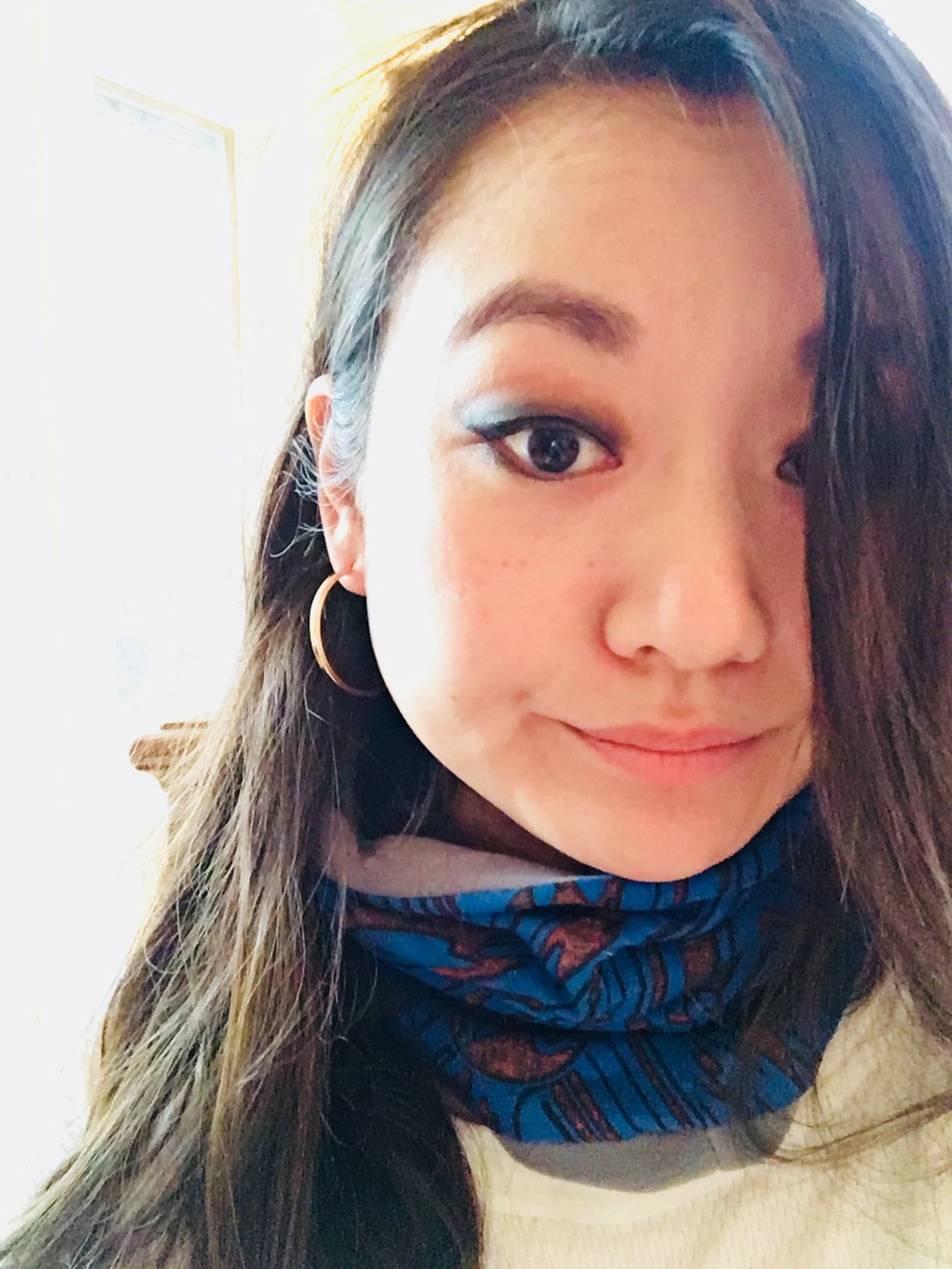 Erinrose Mager’s fiction appears or will appear in The Adroit Journal, DIAGRAM, Hyphen, Passages North, New South, and elsewhere. She is co-editor of The Official Catalog of the Library of Potential Literature (Lit Pub Books) and Creative Writing/Literature PhD candidate at the University of Denver. She received her MFA from Washington University in St. Louis.
Erinrose Mager’s fiction appears or will appear in The Adroit Journal, DIAGRAM, Hyphen, Passages North, New South, and elsewhere. She is co-editor of The Official Catalog of the Library of Potential Literature (Lit Pub Books) and Creative Writing/Literature PhD candidate at the University of Denver. She received her MFA from Washington University in St. Louis.
Her story, "Before Bedtime with Kate," appeared in Issue Seventy-Eight of The Collagist.
Here, she speaks with interviewer Dana Diehl about what we do while we talk on the phone, cat-inspiration, and corking up our stories.
How did this story, “Before Bedtime with Kate,” begin for you?
I guess the short answer is: I’ve always liked telephones and kitchens and moms. The longer answer is: at the time of this story’s conception my friend and MFA cohort-mate Edward Herring was writing a book called Answering Machine. He calls it a “novel out loud.” He and I talked a lot about phones and recorded voice—about what it’s like to speak with/to/about someone via telephone and what that communication over distance or absence of physical presence might look like in prose—how and to what extent those conversations might speak to longing and/[f]or memory. Also, I enjoy thinking about the simultaneity of domestic activity that takes place while two people are on the phone with each other and likewise puttering around their homes, touching objects or pacing or cleaning or drawing or hanging out with cats. It’s a weird intimacy, the phone call. I recognize that this isn’t a revelation.
You start the story by dropping us into a phone conversation between Kate and her mother. Why did you choose to bottle the story into this moment? Was there ever a draft of this story that stretched beyond the edges of the phone call?
To use your word: I like bottling; cork it up, I say! I began “Before Bedtime with Kate” as it stands now, more or less. I often start a piece knowing more about what I want to elide than what I want to foreground. So “Before Bedtime” was always a little story, even at its onset. I think I wanted it to stay little because the scene is little and the exchange is little and it’s important to honor smallness, especially in prose.
If someone were to overhear a phone call between you and a family member, what would that phone call reveal?
An overheard call might reveal that my mom is wicked funny and wicked worried about me all the time i.e. she’s a great mom. Also, I often clean my toilet when I talk to my mom on weekends, and perhaps she takes offense to this, but it’s actually a high honor—maybe the highest. She says, “You’re cleaning the toilet again,” I say yes, and we both laugh. So I guess the call might also reveal my mild anal retentiveness, though my fiction might reveal that aspect of my personhood anyway.
What is inspiring your work these days?
Recently I read The Week by Joanna Ruocco; her asymmetrical, stilted realities are livening. Steven Dunn’s Potted Meat is brimming and discomfiting and prismatic; I revisited it a few months ago and I’m grateful that I did. I also read, finally, Pamela: A Novel by Pamela Lu as part of a workshop with Selah Saterstrom; Lu takes these wide, sentence-level berths away from a phrase’s subject only to circle back, consecutionally, and lines later. That clausal movement astounds me. I rarely read an entire poetry collection in one sitting, but I read Simone White’s Of Being Dispersed without stopping, struck by its pivots and fractures. As for non-books: I haven’t been that inspired by television lately (and I love television) so any recommendations are appreciated. My cat inspires me all the time because he’s so particular and serious about everything.
What projects are you working on now?
I’m trying to write a novel, but it (the novel, the trying) is going poorly. PhD school has slowed my writing process considerably, and I’m resigned. I’m also trying to make sense of a story collection, which feels unwieldy and uneven right now. To use a former professor’s term: I’m trying to find/mute all the ‘bad echoes' in the collection. With two friends (Hannah Waters and Marta Evans) I am editing a collaborative anthology that melds scientific research and speculative fiction, but we’re still figuring out preliminary logistics, and this work involves much trial and error and email.
